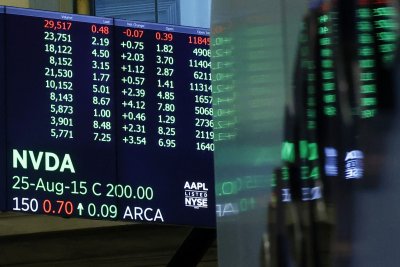
Sept. 15 (UPI) — China said that Nvidia has violated its anti-trust laws in a 2020 acquisition of an Israeli company.
China’s State Administration for Market Regulation announced late last year that the company’s acquisition of Mellanox violates the country’s anti-trust laws. The SAMR approved the acquisition at the time, but now said Nvidia hasn’t followed some conditions of the agreement. It hasn’t said what conditions, though. SAMR said Monday that it will continue its investigation.
Nvidia shares dropped 2% on the news.
Negotiators from China and the United States are meeting in Madrid to discuss trade tensions between the two countries. Recently, the United States added 23 Chinese companies to a list of those blocked from buying U.S. technology because of security issues.
In July, China said it’s investigating American integrated circuit suppliers. The Cyberspace Administration of China, or CAC, demanded Nvidia explain “backdoor security risks” allegedly found in Nvidia’s H20 computing chips, and to submit documentation related to those risks that it said was revealed by American artificial intelligence experts.
Last week, the FCC announced the launch of the proceedings to revoke recognition of seven laboratories that review and approve electronics as accredited test laboratories for testing electronics for approval for the U.S. market, accusing them of posing a risk to national security. Many of them were based in China.
Nvidia CEO Jensen Huang has lobbied for American companies to be allowed to sell to China. He said that if American firms aren’t in China, Chinese companies like Huawei will fill the void in the AI market, CNBC reported. Last month, Washington agreed, with a deal that Nvidia give 15% of revenue in that market to the U.S. government.
On Thursday, NASA said it’s barring Chinese nationals from using its “facilities, materials and networks to ensure the security of our work,” after Chinese workers contributing to research were locked out of their IT systems and prevented from attending in-person meetings on Sept. 5.